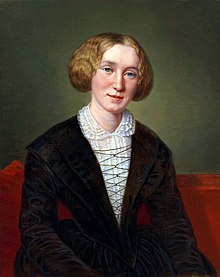User talk:Nahum
Welcome to Wikisource
Hello, Nahum, and welcome to Wikisource! Thank you for joining the project. I hope you like the place and decide to stay. Here are a few good links for newcomers:

- Help pages, especially for proofreading
- Help:Beginner's guide to Wikisource
- Style guide
- Inclusion policy
- Wikisource:For Wikipedians
You may be interested in participating in
Add the code {{active projects}}, {{PotM}} or {{Collaboration/MC}} to your page for current Wikisource projects.
You can put a brief description of your interests on your user page and contributions to another Wikimedia project, such as Wikipedia and Commons.
Have questions? Then please ask them at either
I hope you enjoy contributing to Wikisource, the library that is free for everyone to use! In discussions, please "sign" your comments using four tildes (~~~~); this will automatically produce your username if you're logged in (or IP address if you are not) and the date. If you need help, ask me on my talk page, or ask your question here (click edit) and place {{helpme}} before your question.
Again, welcome! -- billinghurst sDrewth 12:47, 22 January 2010 (UTC)
Congratulations on not being a bot. ;-)
Proofreading Gesenius' Hebrew Grammar[edit]
(moved from Talk:Gesenius' Hebrew Grammar/19. Changes of Consonants)
What's going on here? How do you proofread/edit this? Where is the actual text?
- The actual texts is at the pages in the Page: namespace.
- On the left margin there page numbers. If you click them, you'll see the scanned page and the text on the left side of screen. There you can edit it.
- Thanks in advance for any help. --Amir E. Aharoni (talk) 21:38, 22 January 2011 (UTC)
- Thanks, and Shavua Tov. I am currently also helping to proofread this book (not sure what exact edition) at PGDP. Nahum (talk) 21:40, 22 January 2011 (UTC)
- Thank you very much.
- The version here still has quite a lot of typos, but the good thing about it is that it is cross-referenced with hyperlinks (it took me a few months to do it). As far as i know there is no free digital version of this book that offers this, but correct me if i'm wrong. There may be commercial versions which probably claim copyright on the cross-referencing...
- It would be great if our efforts could be combined. Gesenius' Hebrew Grammar here uses a lot of templates and it may seem difficult at first, so let me know if i can give you any technical help. --Amir E. Aharoni (talk) 21:47, 22 January 2011 (UTC)
- Thanks, and Shavua Tov. I am currently also helping to proofread this book (not sure what exact edition) at PGDP. Nahum (talk) 21:40, 22 January 2011 (UTC)
- I do not know how our efforts can be combined. The PG version is being done at DP-EU, which has been pretty much abandoned by its site admins. I did one page here, it is far easier than at DP-EU since they had no OCR text for any of the Hebrew, and had mmany of the more complex diacritics improperly done. I have to type there all the Hebrew from scratch, and carefully correct the diacritics, as well as fixing ordinary scannos every now and then (l -> 1, b -> h etc.). I also check the Biblical references there (I haven't had a chance to check the quality of the OCR of those here).
- So far the page I have done posed no serious difficulty for me. Thank you for your work here. Nahum (talk) 21:58, 22 January 2011 (UTC)
- So you can proofread it here and copy the result to DP :)
- I saw that you already understand the templates, which is really great! You can find some more technical instructions at these pages:
- Again, thank you! --Amir E. Aharoni (talk) 22:01, 22 January 2011 (UTC)
- You realize the text here has much more additional "code" than is used at DP, which would require stripping. Nahum (talk) 22:03, 22 January 2011 (UTC)
- Stripping code is much easier that proofreading :)
- Converting this code to some other code (HTML or whatever) is also very easy.
- And actually i think that if you simply copy the text from the formatted page here, you can paste it in a plain text file. --Amir E. Aharoni (talk) 22:09, 22 January 2011 (UTC)
- You realize the text here has much more additional "code" than is used at DP, which would require stripping. Nahum (talk) 22:03, 22 January 2011 (UTC)
Alef and Ayin[edit]
Hi,
I saw that on Page:Gesenius' Hebrew Grammar (1910 Kautzsch-Cowley edition).djvu/93 you changed ˒aḥadt to ’aḥadt. Actually the previous sign is correct - it's a half ring that represents Alef, unlike ’ , which is a quotation mark. There's also ʿ for Ayin. --Amir E. Aharoni (talk) 08:00, 23 January 2011 (UTC)
- The half ring does not represent an Aleph, it just looks as an ugly speck and no one knows what it means. But since you decided to use it, I will no longer fix it here. Nahum (talk) 13:31, 23 January 2011 (UTC)
Smaller font[edit]
You may want to know that the smaller font issue was discussed here: Index talk:Gesenius' Hebrew Grammar (1910 Kautzsch-Cowley edition).djvu#Formatting question. There's nothing conclusive there, but i think that actually making it smaller here is not really needed. However, a uniform mark "smaller font needed" as a comment is perfectly fine. --Amir E. Aharoni (talk) 08:06, 23 January 2011 (UTC)
- It has been decided at DP-EU to use a smaller font for those sections. So this will be able to be transformed to whatever code they use there
- (/# before, #/ after said section)
- Nahum (talk) 13:30, 23 January 2011 (UTC)
Re: Niqqudim[edit]
Thanks for your help and it's much appreciated — Ineuw talk 03:03, 16 January 2015 (UTC)